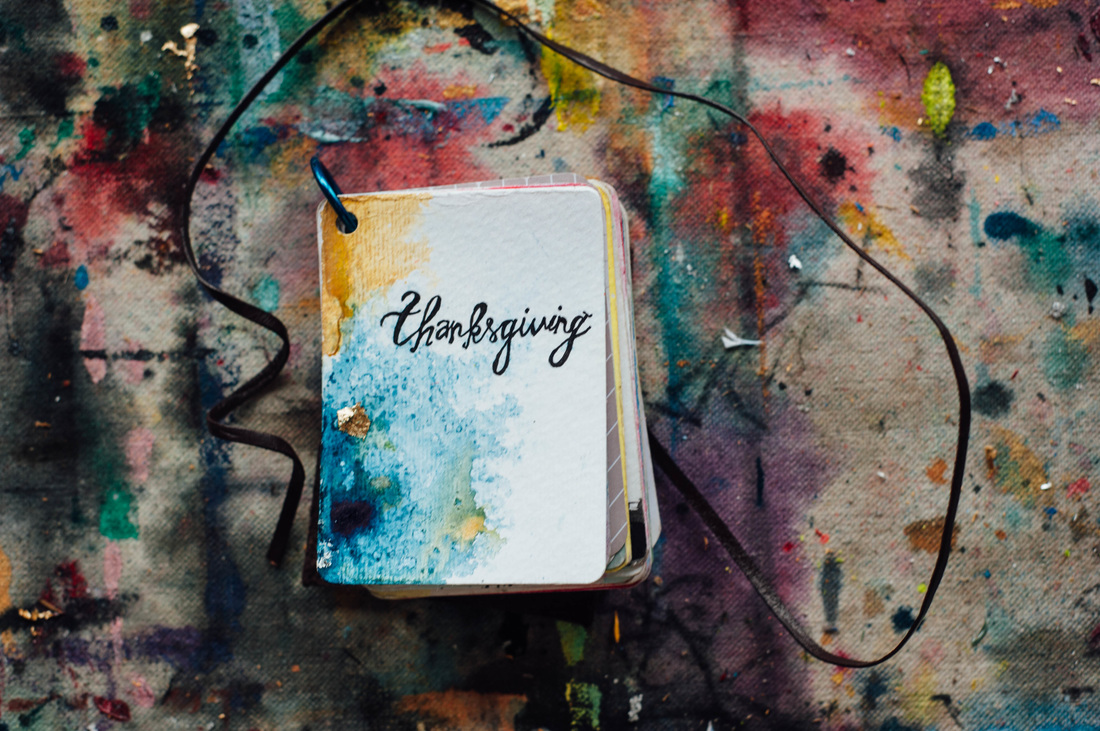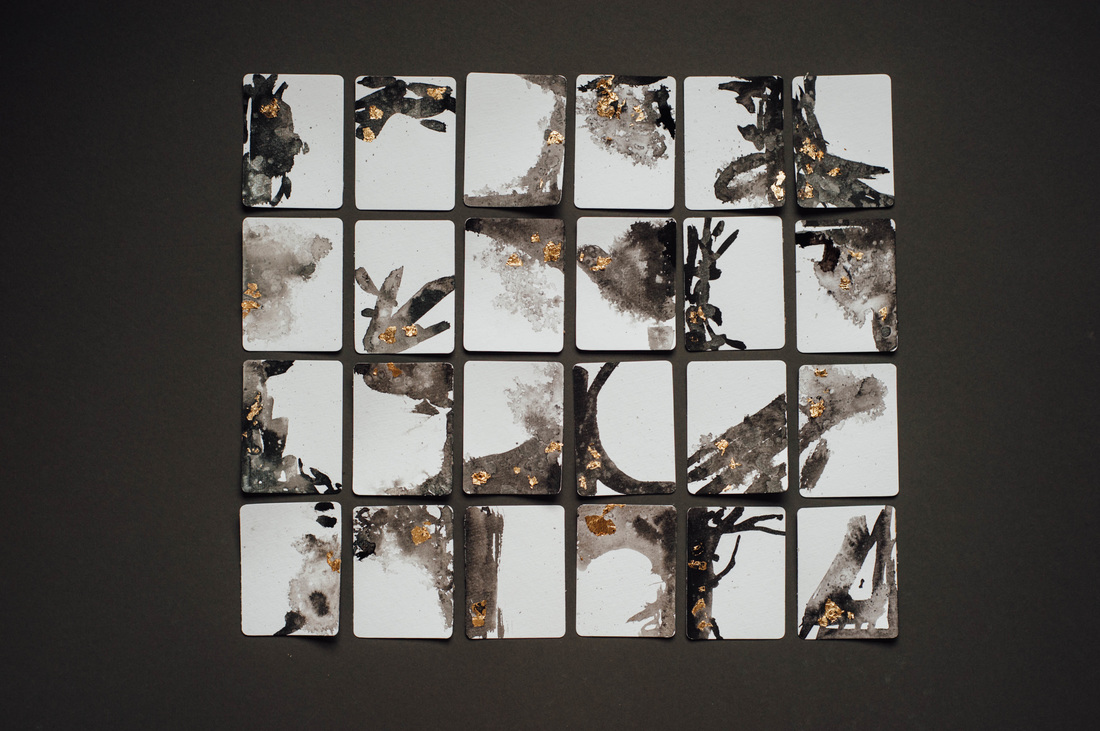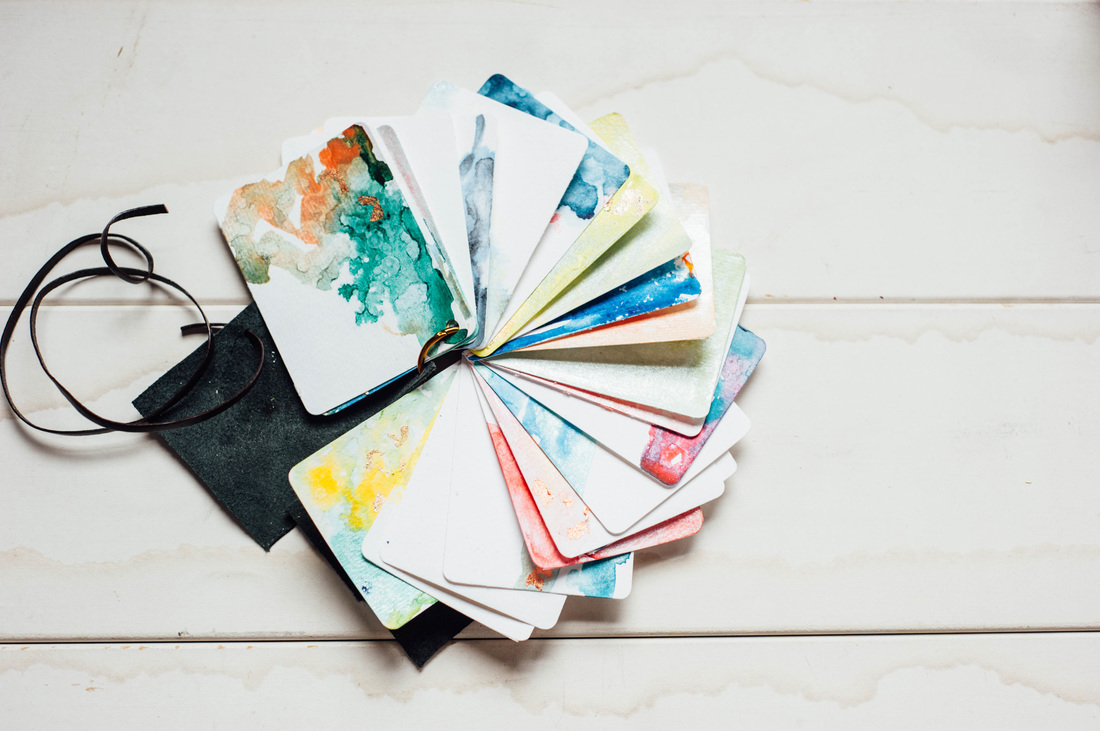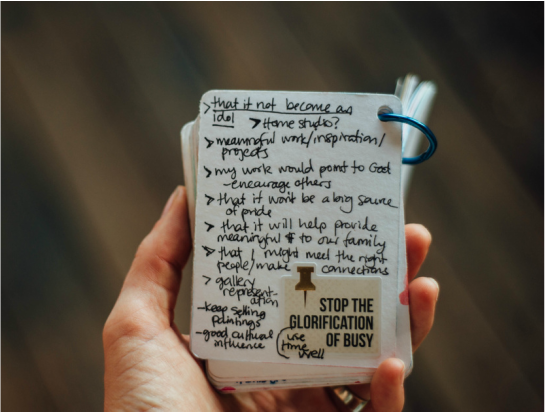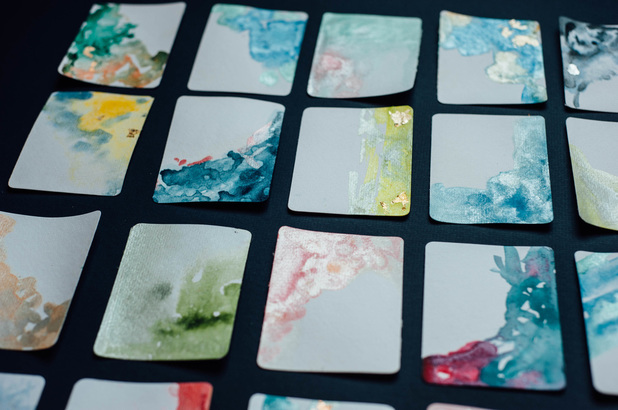|
In his wonderful book, "A Praying Life," Paul Miller talks at length about the benefits of using a tool like prayer cards to help heal the spiritual wound that keeps us from wanting to pray. Miller discusses the way prayer cards not only keep him focused and help give him a blueprint for habitual prayer, but they also serve as a visual reminder of the many prayers God has answered. A deck of well-worn prayer cards is a record that give us a zoomed out story of how God is working in our lives, the lives of those we pray for, and our world.
|
#theartofpraying :: how to use your cards
GETTING STARTED1. Write who/what you want to pray for on the frontHere's how a typical deck might look:
*My "What must you be like?" card comes from a form of creative adoration and prayer mentioned by one of my pastors at Redeemer Fellowship, Kevin Cawley, in a prayer seminar. He encourages us to ask this question constantly. I look at my world, my surroundings, etc. and I use that as a way to adore God. For instance, if I find myself praying in the midst of my morning walk, I might see a particularly beautiful flower or a shaft of light coming through the trees, and I ask, "What must you be like, God, that you created light itself? And you made the world so we could see shafts of light coming through the trees. This is for your enjoyment, and you made us so that we would see this and be made more whole by being pointed to you. Oh, God, what must you be like that you have dominion over the light?" Something like that. 2. Write specific things to pray for that person, issue, or group on the backYour deck should not stop with just writing what you want to pray for on the front. Why?
Because we will still have days where we have no idea what to pray. We are still human, and having a beautiful deck of prayer cards isn't going to magically fix the disconnect we feel with praying. It is also not going to take away the awkwardness or difficulty we feel. There will be days you don't want to reach for the deck. There will be days you get the cards in your hands and see someone's name and your mind will go blank. There are days you'll flip to someone's card who you are very angry with. If you flip that card over and it is blank, there is nothing to help put your anger in perspective. If you flip that card over and see your true heart for that person, it can help. Because writing on our cards gives us a visual record of answered prayer and God's movement in our lives and the lives of those for whom we pray. Paul Miller spends a lot of time talking about our barriers to prayer in "A Praying Life," and one of them is cynicism. We often have a tendency, when good things happen in our lives, to assume they would have happened anyway. Many of us also think that if God is all-powerful and sovereign, what difference does it make if we talk to him? He's going to do it anyway. Or, we don't pray for things simply because we believe they aren't possible, and when something seemingly impossible or good happens, we attribute it to chance. |
3. Pray through your cards daily
The most important step is to pray daily. I pray a few different ways through my deck, depending on how much time and energy I have to pray. To have a single formula in your head for how prayer should go with your deck can be really disappointing for you, because if you're like me, you're human, and you're flawed. You will get tired sometimes. You won't feel like praying sometimes, so be flexible. And the way I pray through my deck might not be the way you wan't to pray through yours - that's fine!
Sometimes I pray through my entire deck, and other times I only have enough energy for four or five cards. To put that in perspective, I have about 30 cards in my current deck. When I want to get through my full deck and have plenty of time, I might pray more creatively, meaning I will really focus on one or two of the bullet points on the back of my card and expand on them, and I might not even touch on the others, or I'll skim them. This kind of prayer is more spontaneous and takes more time, but it is joyful and you really feel like you're talking with God. But sometimes, I don't have the energy to pray creatively for everyone or everything, so I might just read through my bullet points. I have still prayed, though, and I still feel like I'm connecting to God and caring for those I love in prayer.
I have sort of a formula I use that feels like a good rhythm. My first card is Psalm 51: 10-12., asking God to give me a clean heart. I recently added my "What must you be like" card next (see above for info on that) because if I am focusing on who God is and who I am in light of that, it helps my heart as I go forward. After that I pray through the rest of my deck and close by meditating on the person of Jesus with a heart of Thanksgiving. I encourage you to find a sort of rhythm or formula that works for you in how you arrange your cards.
Sometimes I pray through my entire deck, and other times I only have enough energy for four or five cards. To put that in perspective, I have about 30 cards in my current deck. When I want to get through my full deck and have plenty of time, I might pray more creatively, meaning I will really focus on one or two of the bullet points on the back of my card and expand on them, and I might not even touch on the others, or I'll skim them. This kind of prayer is more spontaneous and takes more time, but it is joyful and you really feel like you're talking with God. But sometimes, I don't have the energy to pray creatively for everyone or everything, so I might just read through my bullet points. I have still prayed, though, and I still feel like I'm connecting to God and caring for those I love in prayer.
I have sort of a formula I use that feels like a good rhythm. My first card is Psalm 51: 10-12., asking God to give me a clean heart. I recently added my "What must you be like" card next (see above for info on that) because if I am focusing on who God is and who I am in light of that, it helps my heart as I go forward. After that I pray through the rest of my deck and close by meditating on the person of Jesus with a heart of Thanksgiving. I encourage you to find a sort of rhythm or formula that works for you in how you arrange your cards.
4. Keep track of answered prayers
This is the fun part, where we get to see God's work tangibly.
If I write a general request I want to pray for on the back of someone's card, like praying for their closeness to God, I may not date that request, because I am not going to stop praying for any person to grow closer to God. However, I will write in the margin next to it a small date and a way that was answered if I see God moving in that request. If it is a specific request, like praying a friend gets a new job I tend to date it when I first write it. I will highlight and date that prayer as answered when it is answered. It is amazing to start to see how God is moving in your life and the lives of those around you.
Don't be afraid to mark these up. Take ownership of the cards. They are meant to be used and worn. You can add more cards as time goes on!
It also gives you perspective. Some prayers are answered immediately, while others may take years to answer. Sometimes prayers are answered in a way that is totally unexpected, and sometimes our desires change.
If I write a general request I want to pray for on the back of someone's card, like praying for their closeness to God, I may not date that request, because I am not going to stop praying for any person to grow closer to God. However, I will write in the margin next to it a small date and a way that was answered if I see God moving in that request. If it is a specific request, like praying a friend gets a new job I tend to date it when I first write it. I will highlight and date that prayer as answered when it is answered. It is amazing to start to see how God is moving in your life and the lives of those around you.
Don't be afraid to mark these up. Take ownership of the cards. They are meant to be used and worn. You can add more cards as time goes on!
It also gives you perspective. Some prayers are answered immediately, while others may take years to answer. Sometimes prayers are answered in a way that is totally unexpected, and sometimes our desires change.
PRAYER RESOURCES
There are so many wonderful books and resources for prayer out there. Here are a few I have found extremely helpful:
Books
Seminar
Prayer Seminar from Redeemer Fellowship, Kansas City
Sermons on Prayer
All artwork, photographs, and text on this site are copyright © Kelly Kruse, 2014-2024. No content may be used without express permission from the artist. All rights reserved.




